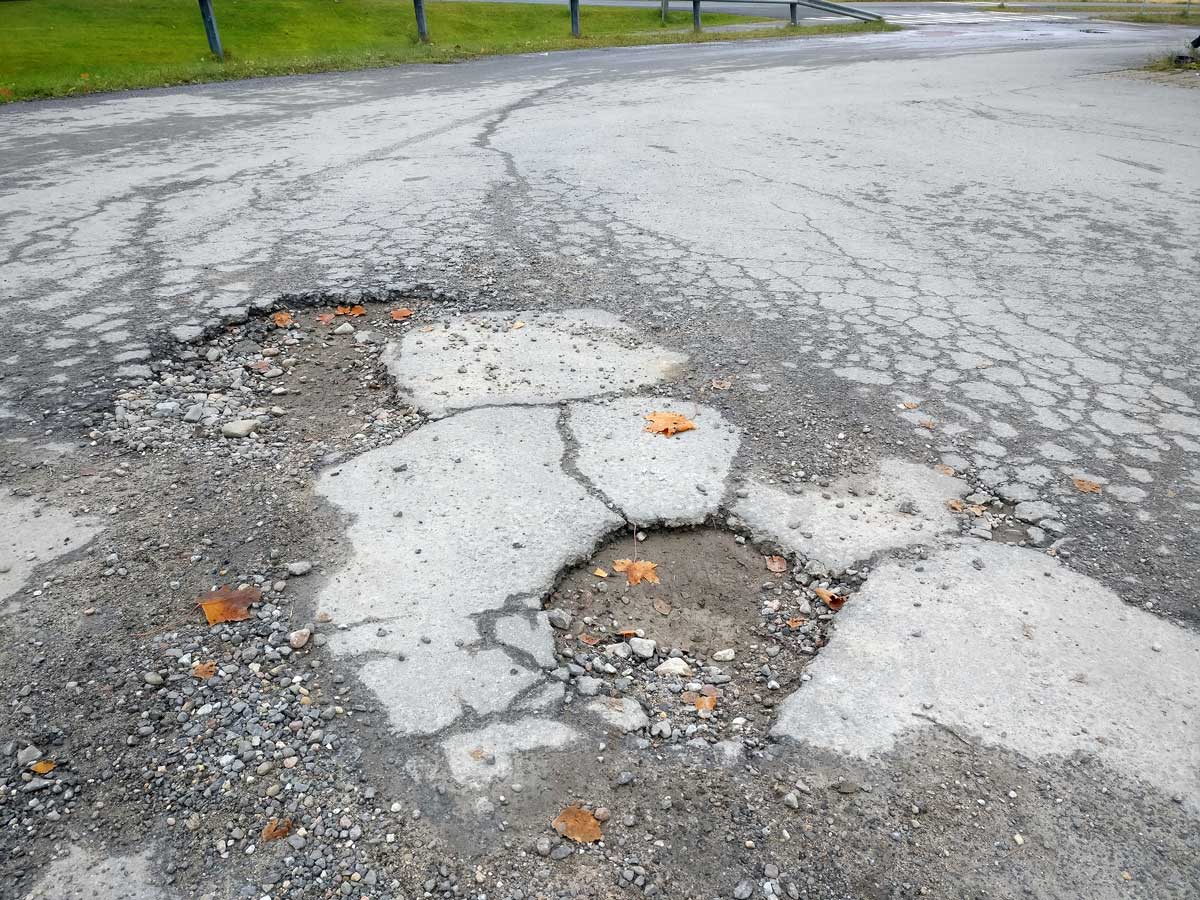As a safe driver, there’s a lot to watch for even on a routine trip. As the wet weather dries up and the days get warmer, it’s the time of year to watch out for those potholes in the road. Even if you’re not driving through Petaluma.
Driving through even what seems to be a minor pothole can cause damage to your car.
Here are some of the ways potholes can damage your car and how to avoid them.
Where Do Potholes Come From?
Potholes are caused by changes in the weather. The change from wet and sometimes chilly weather to warmer or hot weather causes the roads to swell, crack and split, resulting in potholes.
Potholes can be deceiving if filled with water because you have no way of knowing how deep they actually are. Hitting them, especially at higher rates of speed, can potentially cause a host of expensive damage to your car.
Types of Pothole Damage
Here are some of the ways potholes cause major damage to different parts of your vehicle.
Tires
Hitting a pothole can cause severe damage to your tires, especially if they are worn or underinflated.
Pothole damage can cause bulging in the sides of your tires, punctures causing a flat or a blowout.
Wheels
In addition to tire damage, it’s also possible for potholes to damage your wheels. Wheel damage can be found by checking the area where your tire meets the rim.
If you see dents or cracks in the wheel area, it’s unsafe and you should get into a tire shop.
Steering
If your car starts pulling to either the right or left, the pothole damage may have caused issues with your steering alignment. Uneven steering alignment can cause problems with not only your tires, but with your suspension.
Suspension
Pothole damage can affect your car’s suspension system. Parts such as shock absorbers or struts can be damaged which will result in a noticeable change in the way your vehicle handles on the road.
If you feel vibration or it feels like your tires are uneven, it can be a strong indicator of suspension damage. If your car is pulling to one side, you might have suspension damage.
Noise
If you hear a strange noise or noise with vibration after hitting a pothole, make an appointment with a auto body repair technician for damage inspection.
Exhaust System
Depending on the depth of the pothole and how hard you hit it, there’s also the potential for damage to your exhaust system upon impact.
Increased Accident Risks
If you hit a pothole, it’s possible to lose control of your car and cause an accident by swerving into another lane of traffic.
Injuries to you and your passengers could include concussions, whiplash, or injuries from a collision.
How to Avoid Pothole Damage
Here are some things you can do to stay safe and avoid pothole damage:
- Makes sure tires are properly inflated and not worn.
- While in for an oil change, request an inspection to make sure all working components of your suspension are in good condition and nothing needs to be repaired or replaced.
- Watch for potholes and if you can do so safely, drive around them.
- Drive slowly through a pothole if it cannot be avoided. Take your foot off the brake just before driving through a pothole which allows your tires and wheels to roll through instead of experiencing a sudden, jarring impact.
- Watch for puddles because they may be hiding deep, dangerous potholes.
Conclusion
With spring and warmer weather just around the corner, you’re coming up on pothole season. If you’ve taken extra precautions but have still incurred potential damage to your vehicle due to pothole damage, don’t take any chances.
In Sonoma County, there are many repair shops that can perform a thorough safety inspection of your vehicle. Looking for a good recommendation to a local shop? Give Downtown Autobody a call and we’ll refer you to one.





